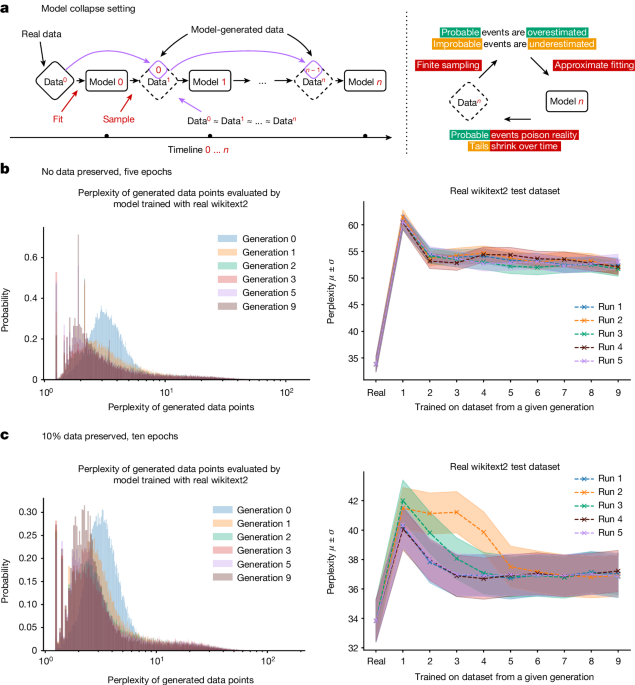Generative AI Models Exhibit Catastrophic Collapse When Trained on Recursively Generated Data
The article discusses the potential issues that may arise when training large language models (LLMs) such as GPT-n on data that is increasingly generated by AI models themselves. It introduces the concept of 'model collapse', where the indiscriminate use of model-generated content in training leads to irreversible defects in the resulting models, causing the disappearance of tails of the original content distribution.
The authors build theoretical intuition behind this phenomenon and demonstrate its ubiquity across various generative models, including large language models, variational autoencoders (VAEs), and Gaussian mixture models (GMMs). They argue that this issue must be taken seriously to sustain the benefits of training from large-scale data scraped from the web, as the value of data collected about genuine human interactions with systems will become increasingly valuable in the presence of LLM-generated content.
The article highlights the need for careful curation and management of training data, as well as the development of techniques to mitigate the effects of model collapse, in order to ensure the continued success and reliability of generative AI systems.
Összefoglaló testreszabása
Átírás mesterséges intelligenciával
Hivatkozások generálása
Forrás fordítása
Egy másik nyelvre
Gondolattérkép létrehozása
a forrásanyagból
Forrás megtekintése
www.nature.com
AI models collapse when trained on recursively generated data - Nature
Főbb Kivonatok
by Ilia Shumail... : www.nature.com 07-24-2024
https://www.nature.com/articles/s41586-024-07566-y
Mélyebb kérdések
